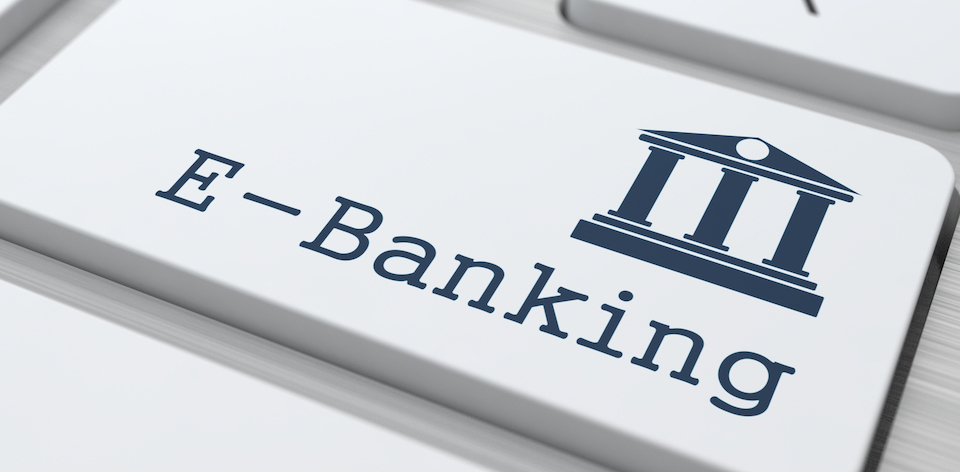Globally, the banking sector is experiencing growth and innovation fueled partly by Information and Communication Technologies (ICT) and the advancement in digital technology.
In addition, clients’ increased needs for quality services other than the traditional lending and deposit-taking services, has also enhanced banking as a lifeline of the world economy.
This rapid development of new digital technologies and techniques has ensured improvements in peer-to-peer banking, effectively phasing out the important role of intermediaries, previously played by banks.
One can therefore open a bank account in most parts of the world, without ever entering a bank branch. Some licensed banks are already operating without any physical branches, choosing to offer exclusive virtual services.
Mainly, e-banking occurs when a bank’s client is able to access full-fledged banking services at the touch of a button. This includes access to local and international transfers, applications for loans, new services and initial applications for bill payments among others.
Also known as Internet banking, electronic banking or e-banking is the direct offer of banking and allied financial services to consumers without a face-to-face interaction.
A myriad of new digital channels is used to offer services, which channels may include the use of the Internet, Automated Teller Machines (ATMs), private and public networks, television, connected devices, and telephones (mobile and fixed).
Currently, depending on the e-banking services offered, clients can download or receive information from their banks through information
pull or push services such as periodic bank balances, bank statements, banking marketing information, and changes in rates.
Though none of the banks in Ghana are offering this, it is now possible to make a deposit through a paper-based cheque into your bank account without visiting a branch or an ATM. This can be done by simply taking a picture of the cheque and uploading it (depositing) on your mobile banking application.
Advantages
E-banking comes with a lot of advantages which comprise:
• Promotion of financial inclusiveness
• Doing away with the need to carry physical cash.
• Time and cost savings on the part of the bank and clients.
• Lack of time restrictions on access to your bank account.
• Round-the-clock banking services instead of the traditional 9.00am to 5.00pm.
• Clients’ access to timely information about their cash position every minute of the day, allowing for better planning.
• Banks enabling clients to manage their monthly budgets by providing them information on the type of expenditure they are making from their accounts and prompting them if, for example, they happen to be spending more money on entertainment than their monthly budget.
Challenges
Although e-banking comes with a lot of advantages, this fast-evolving service is not without challenges. In Ghana, most banks currently provide some form of e-banking services, but,
they do so, unfortunately, still relying on traditional banking methods.
For e-banking to work, the banks must discard some of these traditions and assume a new culture of round-the-clock provision of services so clients facing online challenges, do not have to wait for the bank to opens its doors before being attended to.
Security concerns remain the main challenge facing most clients in the uptake of e-banking services. This is compounded by the failure of the banks to properly educate clients on the security of transactions with detail clear-cut procedures for the prevention and management of fraud when it occurs. As a counter, banks are encouraged to introduce a two-step authentication process which combines passwords with a one-time code generated and transmitted to the client through a short message service (SMS). Alternatively, clients can be provided with a token that generates this one-time code for each transaction, to help build confidence with the e-banking service.
Furthermore, issues such as the cost of bandwidth and appropriate devices to use for e-banking business transactions detract from the immense benefits of e-banking.
Conclusion
Innovations in the banking industry as a whole and e-banking in particular, present numerous advantages for a growing economy such as Ghana’s. It presents a solution to bringing more Ghanaians into the formal banking net while driving
Ghana’s goal towards a cashless or cash-lite economy. Again, the growing digitisation within the sector supports an environment that stimulates innovations in other areas of the economy since banking is interconnected with all sectors of the economy.
There is a need for all financial sector institutions to push more for usage of e-banking services in the Ghanaian economy. For this to happen, the Bank of Ghana, as the regulator, must impose and regulate international standards of e-banking on the financial sector in addition to their (BoG’s) Guidelines for Branchless Banking. Most importantly, all and sundry in the sector must invest in the utilisation of e-banking to improve on clients’ banking experiences.
The introduction of a cash-handling policy by the BoG can ensure more people migrate from the traditional deposit and withdrawal services to e-banking. With this, the BoG will be required to impose a cash-handling charge on transactions involving the physical handling of cash. For the benefits of such a system, we in Ghana do not have to look farther than the Eastern borders of our neighbours in Nigeria.
Ghana already has the relevant baseline including massive telephony penetration to migrate to a cashless economy. What is lacking, however, is a concrete leadership and institutional partnership between government and the banking industry.
Author: Kwame Ahiabenu|| e-mail: kwami@penplusbytes.org




